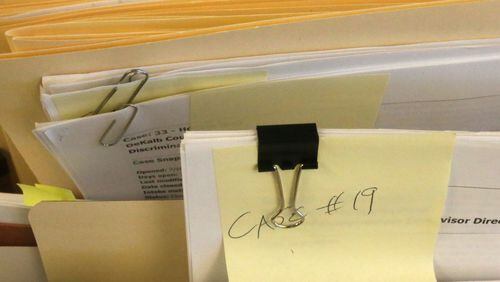In a potential setback to government transparency, AJC reporter Mark Niesse reported yesterday that the DeKalb County Board of Ethics is weighing a plan to withhold complaints to the board from the public until after they've been investigated.
Credit: Ken Foskett
Credit: Ken Foskett
That's bad for DeKalb residents -- full disclosure, I'm one -- and bad precedent for Georgia's Open Records laws, which are intended to keep the public's business in view of the public.
The ethics board is a public body, appointed by public officials and some citizens to consider ethical issues of public officials. So why on earth would you make its proceedings secret from the public?
The justification cited by the board's new director, Stacey Kalberman, is that citizens can file ethics complaints to do political damage to public officials.
In DeKalb, where subterranean political intrigue seems routine, that's probably not an unfounded fear.
But sunshine is the antiseptic for false claims, too. Those claims will be circulated regardless of whether the ethics board makes them public, and only by the board knocking them down as not credible and publicly dismissing them does the truth win.
I learned that during years of reporting on local, state and federal government, and fight for that position as board member on the Georgia First Amendment Foundation.
Moreover, making complaints secret weakens the most effective weapon the commission has to encourage ethical conduct: public shaming.
Ethics boards don't send officials to prison and they can't levy punitive fines of more than $1,000. What they can do is call out unethical conduct and shame officials into straightening up.
It's crazy for the DeKalb ethics board to weaken one of its most potent weapons before it even starts doing its job.
And how irresponsible would it be for DeKalb to set a precedent that other ethics boards around Georgia were equally free to keep complaints against elected officials secret?
DeKalb has already set enough of an example in Georgia with the conduct of its public officials. Weakening government transparency is one area in which it shouldn't lead.








